I grew up backpacking in the Adirondacks Mountains, camping, and orienteering all over the country. It never occurred to me to be scared of nature – even when in bear country or when encountering venomous snakes.
Then I went hiking in the jungle of Peru.
That is when I finally felt real fear of nature.
The fact that my 6 year old was on the hike with me only compounded my fears by making my mommy instincts kick in.

Even the trees in the jungle are threatening!
That fear-ridden hike changed my perception about a lot of things, particularly:
1) The idea that humans have conquered the world. No. There are still some places where wildlife reigns supreme!
2) It isn’t just the big things we should fear. Bears are scary, right? Well, in the jungle, it was the izula ants which had me terrified.
3) I became more conscientious of why so many people fear the outdoors – and also what can be done to quell those fears.
Your Fears are Justified…
The fear I felt hiking in the jungle was completely justified. Why? Because I am completely clueless about the dangers of the jungle. I don’t know what animals live there, what plants are dangerous, how to read the weather or the terrain…
Remember, fear is a natural response and it is fear that helped humanity survive through the ages.
Nature isn’t some terribly dangerous thing where malicious wild animals lurk around every corner waiting to kill you. But if you are heading into nature and have no clue about how to act in it, then your fears are justified. You could end up doing something stupid out of ignorance, such as forgetting to make a ring for your campfire and starting a forest fire.
Just consider how many people die in Yellowstone because of “stupid” mistakes — like the tourist who died because he tried to swim in the boiling hot spring.
Going into nature requires knowledge about what to do and how to act. It isn’t just for your safety, but for the nature too. How many uneducated hikers leave trash all over the trails, or campers crap in the woods without burying it?
Here are just some of the things you should know before going backpacking, camping, or hiking:
- How to set up camp:
- How to avoid landslides, falling trees, flooding…
- How to make a fire
- How to make a latrine
- Wild animal safety:
- First aid:
- How to prevent waterborne illness
- First aid skills
- How to treat hypothermia
- How to treat burns
- Hiking:
- How to read a map
- What to do if you get lost
- How to calculate water needs for hiking
This list could go on, and it varies depending on what type of outdoor activity you are doing and where.
The point is that, if you don’t know about any of these necessary things, then your fears of nature are justified. You could get hurt or killed without proper knowledge!!
When Educating Yourself Doesn’t Cure the Fear
Sometimes education isn’t enough to quell fears.
Just look how many people are scared of spiders. They know that the spiders are harmless, and even “deadly” spiders like black widows are unlikely to kill anyone.
Fear isn’t rational.
This is what David Ropeik talks about in Psychology Today when he says that fear is a mix of facts, feelings, intuition, and gut reaction. He quotes the neuroscientist Sam Wang in saying,
“The brain really is a survival machine. It’s not there to perform some sort of super computing operation… It tells you lies. Your brain misrepresents. It distorts. All in the interest of helping you survive.”
So stop feeling bad when people arrogantly tell you that your fears of the outdoors are misplaced.
The only way to overcome your fears is to face them.
Yeah, that seems like a crappy Catch 22. The only way to get over your fear of (bears, snakes, sleeping alone at in the woods…) is to go out into nature. But you can’t go out and do it because you are too scared!
The solution to this is to start slowly.
Starting Slowly
Educating yourself will do a lot to quell your fears of the outdoors, but it won’t necessarily cure them. The only truly effective way to overcome fear is through exposure. Eventually, you become more comfortable with the outdoors and aren’t scared anymore.
As one Wilderness Survival forum member said about camping fear,
“It was a gradual transition for me. From a crib, to my very own bed, to blanket pup tents in the living room that my younger brothers weren’t allowed in, to overnights alone in the tent in the backyard…to an eventual solo hike in New Hampshire that lasted 10 – 14 days.”
The next time I go jungle hiking, I’m going to pay for a professional guide to take me. I will be able to learn from the guide. After many treks, I might finally have enough wisdom to go feel comfortable going out alone.
If your fear is solo camping, maybe you need some more group trips before you are ready.
Or if your fear of wild animals is keeping you from camping, maybe you should sleep in a cabin a few times first. You’ll get used to the nighttime sounds while having the mental security of the cabin.
What’s the Worst that Could Happen?
Here’s the tactic that I personally use to get over any fearful moments while camping. I ask myself, “What’s the worst that could happen?”
This is counter to the whole “positive thinking” movement that discourages you from ever admitting that something bad could happen. Positive thinking might make you feel good, but it doesn’t stop bad things from happening!
The pessimistic approach is much better at squashing your fears because it allows you to prevent and prepare for any bad thing which may happen. And, when you are prepared, you will be less scared.
For example, the most dangerous animals where I live are viper snakes. I did a lot (LOT!) of research on vipers before going backpacking with my then-3-year-old daughter. I read a study where I learned that death and amputation rarely occur, and that I could conclude that my daughter would be safe so long as we could get antivenom within 4 hours. So, I chose not to camp more than 4 hours away from civilization when in viper territory.
I also made sure my daughter knows how to avoid snake encounters (don’t pick up any rocks!), what to do if she sees a snake, and even first aid for snake bites.
Examples of Worst Case Scenarios (WCS)
WCS: Bear Attack
Prevent: Bear-proof the campsite
Plan: Bring bear spray in case of an attack
WCS: Getting Lost
Prevent: Learn navigation skills and always bring a map and compass
Plan: Know how to make a survival shelter in case you need to spend a few nights in the woods; always carry a whistle and a firestarter so you can make a smoke signal
WCS: You Get Injured while Hiking
Prevent: Wear proper shoes and don’t push your limits
Plan: Tell a family member where you are going. Establish a specific time/date that you will be back. If not back by that time, the family member is to notify search and rescue. For longer hikes, you can use a GPS system like SPOT, which is what my dad uses.
Dealing with Fear Once You Get Out There
The tactics up until now – educating yourself, taking baby steps, and thinking of Worst Case Scenarios – are all fine when preparing for a camping trip.
But what if you get scared while out in the wilderness?
Turning around isn’t exactly an option at 3am!
At night, the sounds of the wild seem really amplified. Squirrels running on branches sound like giant bears. The wind blowing can make trees seem like there are talking. And, yes, animals do howl.
All of these sounds can really get your imagination going!!!!
There’s a lot of ways to deal with this fear…
- Hike until you are so exhausted that you drop to sleep immediately.
- Bring something along to do and think of, such as a book to read.
- Open the tent and look around. It is better to face the fear than worry about “what’s out there” all night.
- Remind yourself that you are alright right now (more on that technique here)
- Set up trip wires so you are warned if any animals come
As one woman said in the comments of this post on fear and the outdoor experience, fear and respect are two sides of the same feeling in nature. Sometimes fear takes over, and you have to struggle to get through it.
And Overcoming Your Fear Is Worth It
On a final note, I like how Rich Wright at Live Outdoors talks about how overcoming fears unlocks ancient memories of “rites of passage” ceremonies that all indigenous tribes partook in.
Why are tribal rituals focused on overcoming fear?
Because they were aware that the access to wisdom is hampered by fear.
Here’s where I’m going to get sentimental and cheesy:
Overcoming your fear of nature isn’t only important so you can get closer to nature. It is so you can get closer to yourself and be brave enough to live the life you want.
What’s the most scared you’ve been while in the outdoors? How did you deal with it?


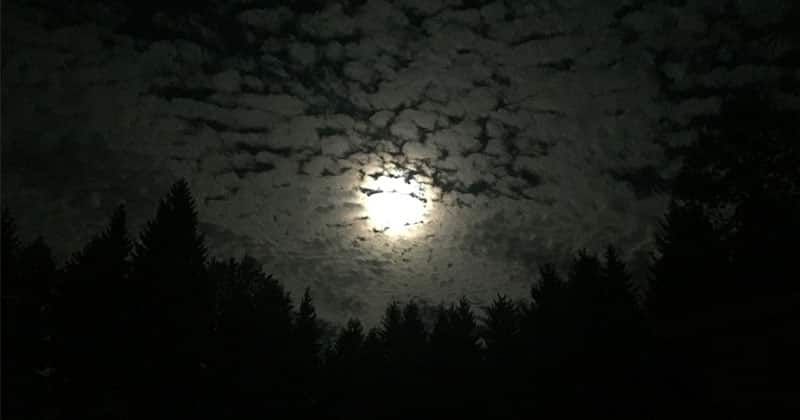


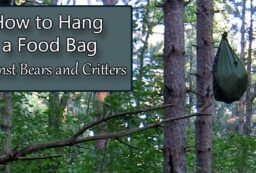




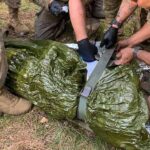
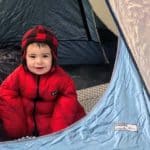
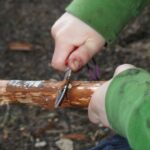
2 Comments
Riley
September 28, 2022 at 8:35 amI have a fear of cyotes or wolfs attacking me while I sleep where I live in Port Perry Ontario should I really be that scared tho more so worrying about what is the cyotes have mange or another type of disease Wich doesn’t make them act normal and lunge at you regardless what you do that’s my fears there that I wish I could overcome
Diane
September 28, 2022 at 11:28 amDo your research and learn about coyotes and wolves (maybe call the Nonquon Outdoor Education Centre). Once you learn about what to do — and have a plan for worst-case-scenarios — you will be less scared.